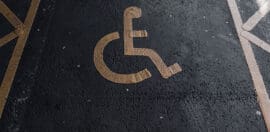NSW government pledges support for disability advocacy

18 November 2020 at 5:31 pm
Advocacy funding was due to end in June next year
New South Wales disability groups are breathing a sigh of relief after the state government announced it will continue funding advocacy for the next three years.
The NSW government’s commitment of $13 million a year ends an uncertain period for advocacy groups, who had no funding certainty beyond mid-2021.
Serena Ovens, convener of the NSW Disability Advocacy Alliance, said she was thrilled by the announcement.
She said this was a win for people with disability who needed these services and had campaigned tirelessly for this funding.
“The government commitment will come as a welcome relief to the 1.37 million people with disability across NSW who rely on access to independent disability advocacy for lifesaving support and advice in cases of discrimination, access and inclusion issues,” Ovens said.
“It will help [help guarantee] that people with a disability will continue to have access to a voice and support when they need them most.”
Advocacy funding has been a constant battle for disability groups since 2017, when the NSW government said it would no longer fund specific disability advocacy services under the full rollout of the National Disability Insurance Scheme.
After persistent campaigning from advocates, the NSW government announced in 2018 that up to $26 million would be available for advocacy services until 2020.
While funding was recently extended further to June next year, this latest commitment gives advocacy groups the freedom to prepare beyond 2021.
A recent NSW Disability Advocacy Alliance survey of more than 600 people found that 85 per cent of respondents would need to use advocacy services in the future.
Eighty per cent said that the loss of advocacy services would have either a significant or disastrous effect on them and their families.
Mark Grierson, CEO of Disability Advocacy NSW, told Pro Bono News that advocates were looking forward to getting back to supporting people with disability.
“We’ve been very busy, our workload is going up, and people with disability clearly need us,” Grierson said.
“So there’s an overwhelming sense of relief that we can just get on with our job now.”
The NSW government has said it will transition to a new Disability Advocacy Futures Program (DAFP), which was a key recommendation of a disability advocacy review last year.
The review said this program should be designed to “have a more targeted focus on systemic and individual advocacy while recognising support for representative activity”.
Grierson said advocates were unsure of how the DAFP will operate, and planned to meet with the government soon to better understand the detail and co-design of this program.
He said he now felt positive about the future of advocacy in NSW and was keen to showcase the sector’s importance to the disability community.
“Our advocacy services are not asking for this money [without providing] outcomes. We’re happy to do outcome measurements. We’re happy to show the number of people we help and prove our worth,” he said.
“We’re happy to show that we are value for money.”







